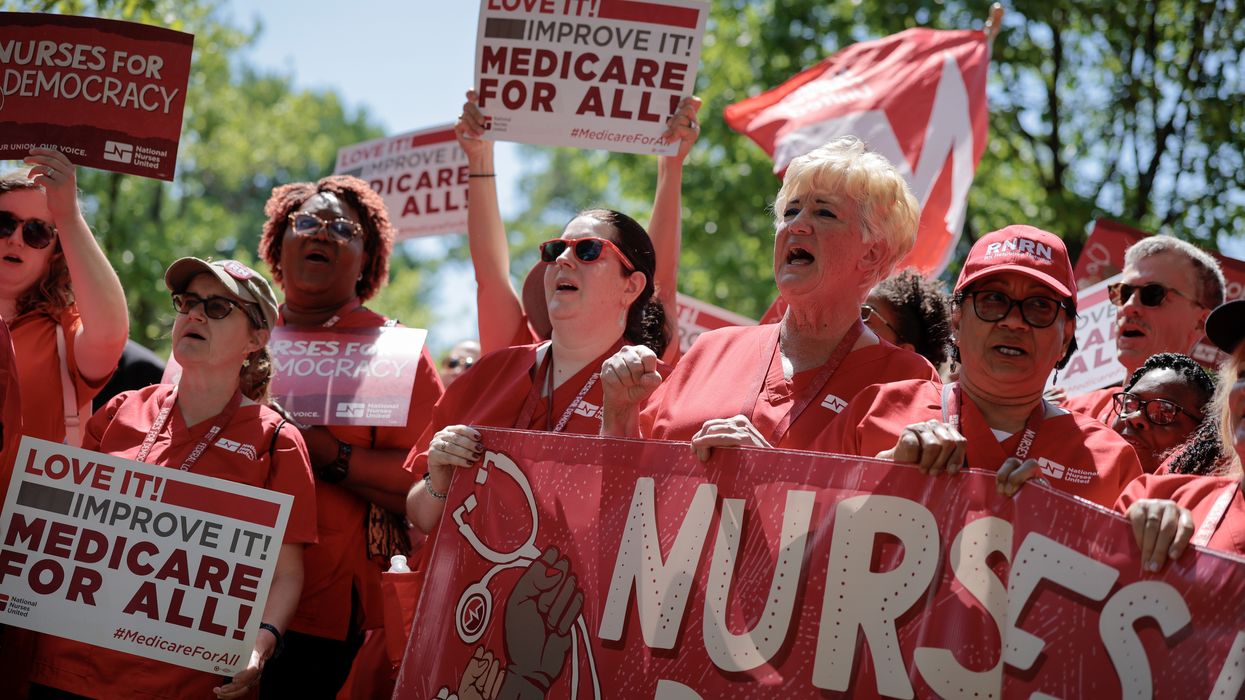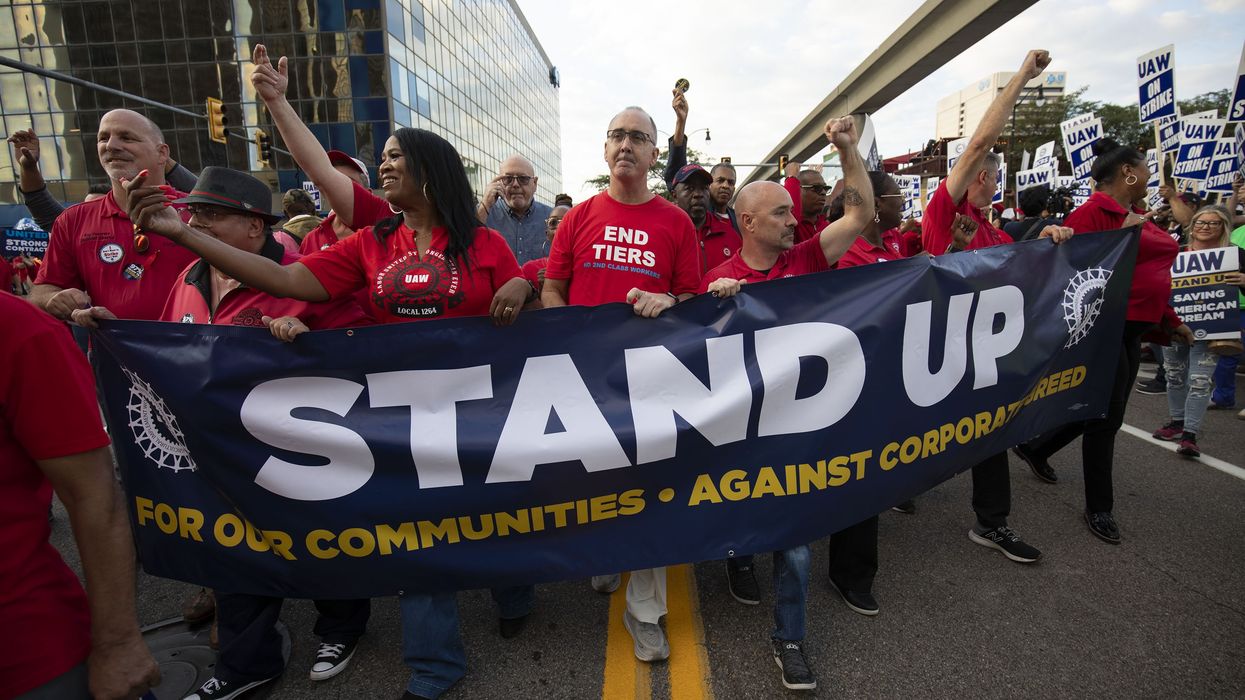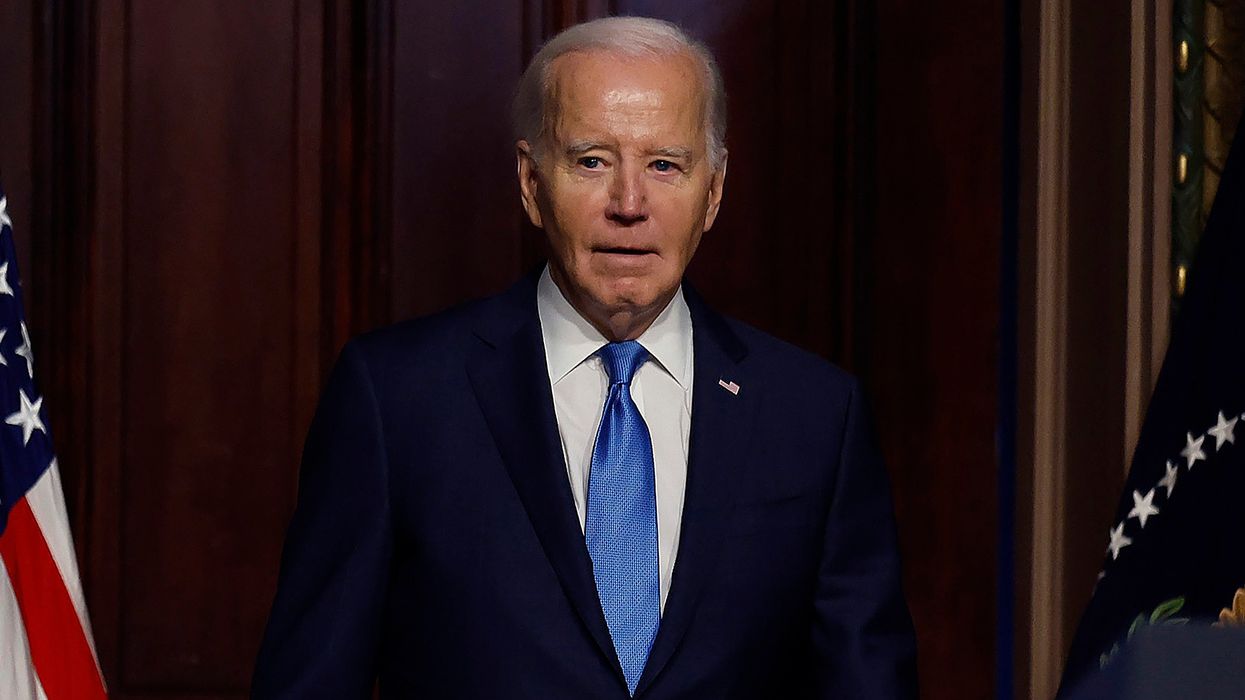Medicare for All, Says Sanders, Would Show American People 'Government Is Listening to Them'
"The goal of the current administration and their billionaire buddies is to pile on endless cuts," said one nurse and union leader. "Even on our hardest days, we won't stop fighting for Medicare for All."
On Tuesday, Independent Sen. Bernie Sanders of Vermont and Democratic Reps. Pramila Jayapal of Washington and Debbie Dingell of Michigan reintroduced the Medicare for All Act, re-upping the legislative quest to enact a single-payer healthcare system even as the bill faces little chance of advancing in the GOP-controlled House of Representatives or Senate.
Hundreds of nurses, healthcare providers, and workers from across the country joined the lawmakers for a press conference focused on the bill's reintroduction in front of the Capitol on Tuesday.
"We have the radical idea of putting healthcare dollars into healthcare, not into profiteering or bureaucracy," said Sanders during the press conference. "A simple healthcare system, which is what we are talking about, substantially reduces administrative costs, but it would also make life a lot easier, not just for patients, but for nurses" and other healthcare providers, he continued.
"So let us stand together," Sanders told the crowd. "Let us do what the American people want and let us transform this country. And when we pass Medicare for All, it's not only about improving healthcare for all our people—it's doing something else. It's telling the American people that, finally, the American government is listening to them."
Under Medicare for All, the government would pay for all healthcare services, including dental, vision, prescription drugs, and other care.
"It is a travesty when 85 million people are uninsured or underinsured and millions more are drowning in medical debt in the richest nation on Earth," said Jayapal in a statement on Tuesday.
In 2020, a study in the peer-reviewed medical journal The Lancet found that a single-payer program like Medicare for All would save Americans more than $450 billion and would likely prevent 68,000 deaths every year. That same year, the Congressional Budget Office found that a single-payer system that resembles Medicare for All would yield some $650 billion in savings in 2030.
Members of National Nurses United (NNU), the nation's largest union of registered nurses, were also at the press conference on Tuesday.
In a statement, the group highlighted that the bill comes at a critical time, given GOP-led threats to programs like Medicaid.
"The goal of the current administration and their billionaire buddies is to pile on endless cuts and attacks so that we become too demoralized and overwhelmed to move forward," said Bonnie Castillo, registered nurse and executive director of NNU. "Even on our hardest days, we won't stop fighting for Medicare for All."
Per Sanders' office, the legislation has 104 co-sponsors in the House and 16 in the Senate, which is an increase from the previous Congress.
A poll from Gallup released in 2023 found that 7 in 10 Democrats support a government-run healthcare system. The poll also found that across the political spectrum, 57% of respondents believe the government should ensure all people have healthcare coverage.


